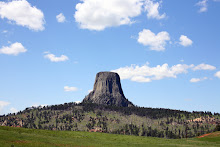The accumulation of certain chemicals in the body and other factors in our modern environment might also play a role in diminishing the healthy functioning of the gland, some researchers claim. However, there are theories about how healthy activity of the pineal gland can be restored.
Friday, July 25, 2014
Future of human consciousness involves ‘third eye’ pineal gland?
By Steve
Hammons
The pineal
gland is a small, pine cone-shaped gland variously reported to be about the
size of a grain of rice or a pea, and located in the center of the human brain
between the two hemispheres, above and behind the pituitary gland.
It
is also referred to as the pineal body,
epiphysis cerebri, epiphysis and "third eye." The name
“pineal” is derived from the root word “pinea,” Latin for “pine cone.”
From ancient
human history to modern scientific research, the pineal gland is linked with
human consciousness, special awareness and perception. It has been explored
as part of various spiritual traditions throughout human history.
René
Descartes, the French philosopher (1596-1650), called the gland “the seat of
the soul” and referenced it in some of his writings.
The gland
contains photoreceptor cells and tissue, rods and cones, like those in the eye.
And, reportedly, like the eye, it is connected to the brain’s visual cortex.
INNER VISION
The pineal is
involved in the production of the hormone melatonin, a chemical that responds
to, and regulates our responses to light and darkness, the seasons and sleep
patterns. The gland is also associated with the production of the important
neurotransmitter serotonin.
Other species
of animals also have a parallel gland. The pineal gland contains
magnetite, the magnetic material found in birds and other animals that is
believed to be associated with navigation. The pineal appears to be
possibly or partially inactive or dormant in other species too, like it is in
many or most humans.
The so-called
“opening of the third eye,” or increased activation of the pineal, is
associated with an alleged neurological phenomena often called “the rising of
the kundalini” in the Yoga tradition.
This process is
suspected to be the manifestation of some type of cohesive energy that
integrates and rises within and around the spinal cord and in the brain and
human consciousness. It apparently involves some type of sub-neurological
quantum energy.
Medical researcher
Rick Strassman, MD, of the University of New Mexico, has conducted research
suggesting to him that the pineal gland may be associated with the
neurotransmitter dimethyltryptamine (DMT), nicknamed “the spirit molecule.” The
pineal is also associated with other neurotransmitter chemicals linked to
certain types and levels of consciousness.
In addition,
the gland is believed to be connected with aging. The pineal goes through
phases of transition in childhood, puberty and adult aging. The pineal may
become less active as we age.
The accumulation of certain chemicals in the body and other factors in our modern environment might also play a role in diminishing the healthy functioning of the gland, some researchers claim. However, there are theories about how healthy activity of the pineal gland can be restored.
HEALTHY
FUNCTIONING
Various forms
of meditation, Yoga, health practices and other innovative approaches are
reported to help activate the pineal gland. Many people believe that these kinds
of activities assisting with the stimulation of the pineal help people perceive
and tap into spiritual and quantum dimensions and realities. General
psychological, emotional and physical health might also be improved.
During the
opening of the third eye a number of cascading physiological, neurological,
biochemical, psychological and emotional effects may occur, according to some
researchers.
The process may
occur sporadically and intermittently, and it may have components that are
disorienting, confusing or even upsetting to the person experiencing them.
At the same
time, many of these effects may be quite pleasant or even blissful, giving the
experiencer the feeling of connectedness and wholeness with larger spiritual
realities that can reportedly be very comforting and insightful.
What each of us
has become accustomed to as our “normal” consciousness might be changed in
significant ways by the activation of the pineal gland and the kundalini
process.
If increased
healthy activity of the pineal gland were to occur within the human population
at a more robust rate and scope, and effective perception of spiritual and
quantum realities also increased as a result, human evolution could take a leap
forward.
Such a development
might be helpful in getting us to, and past an important tipping point in the
development of our species.



































































































































































































